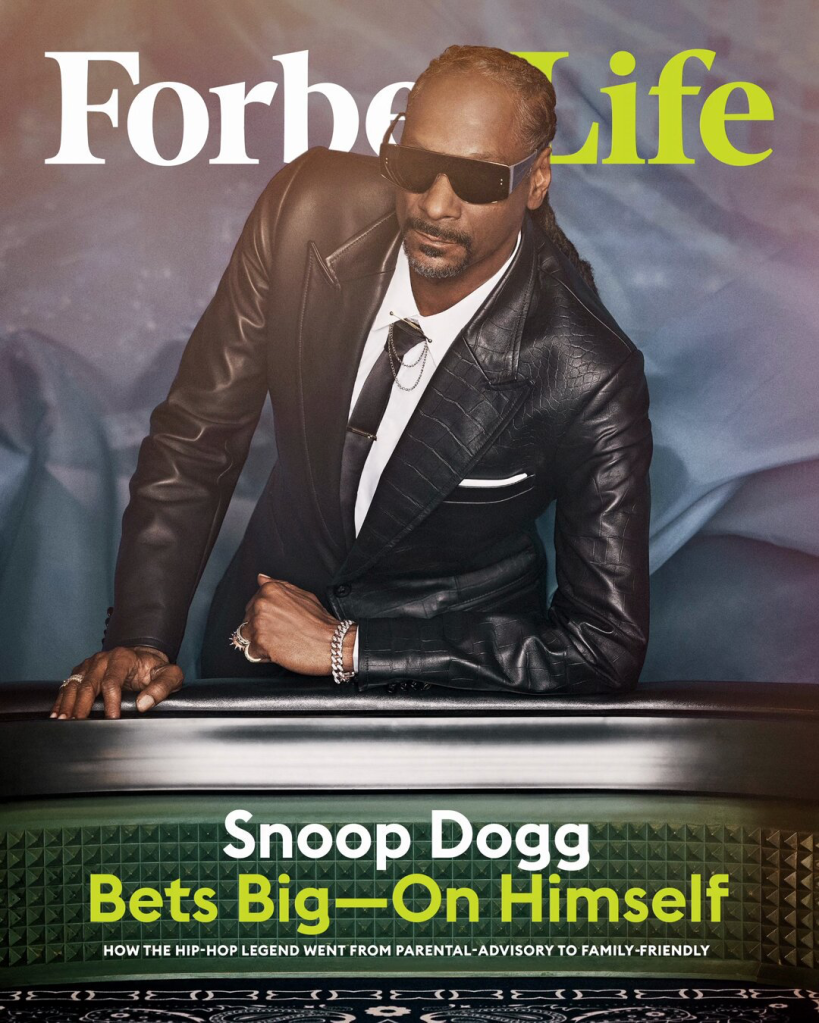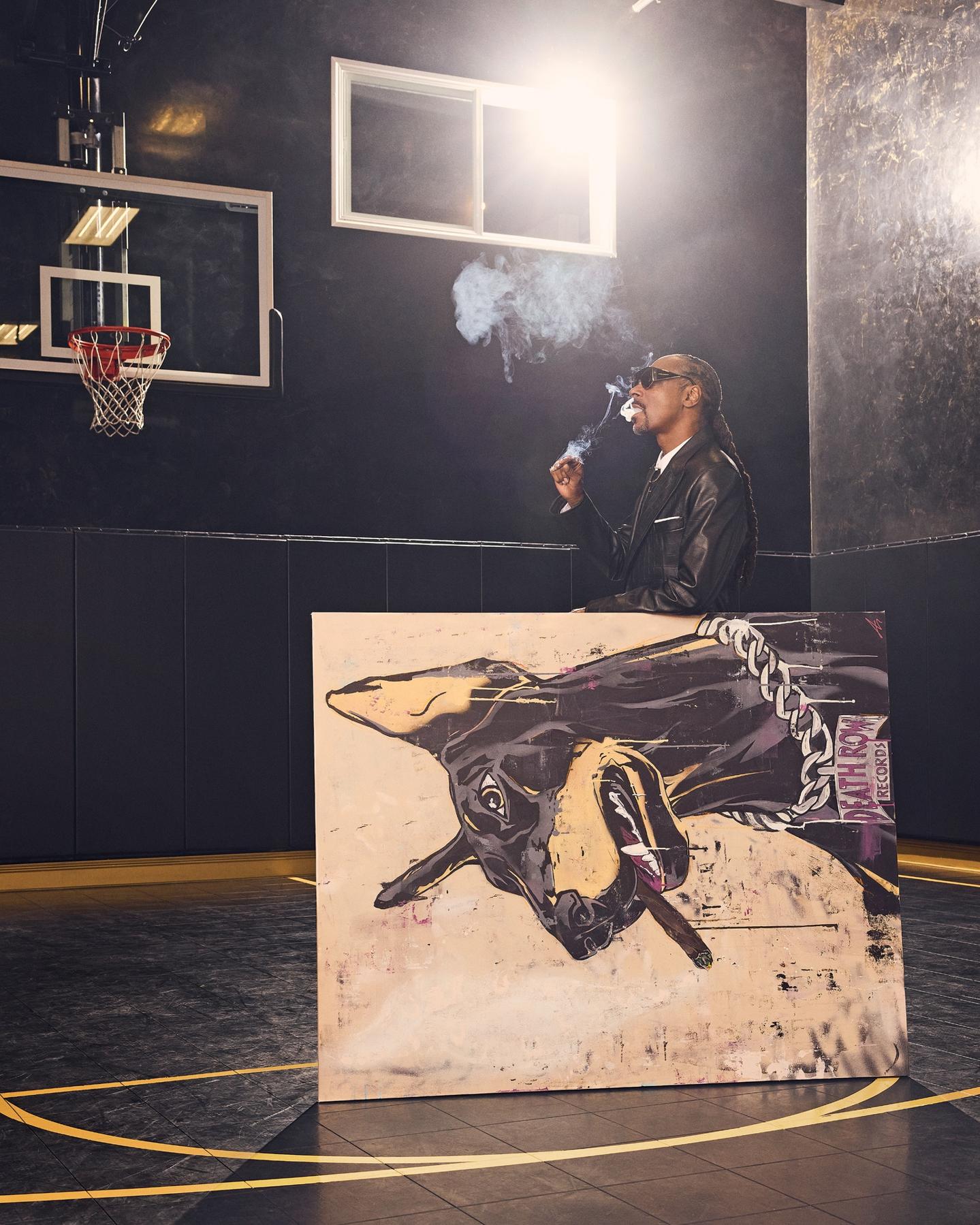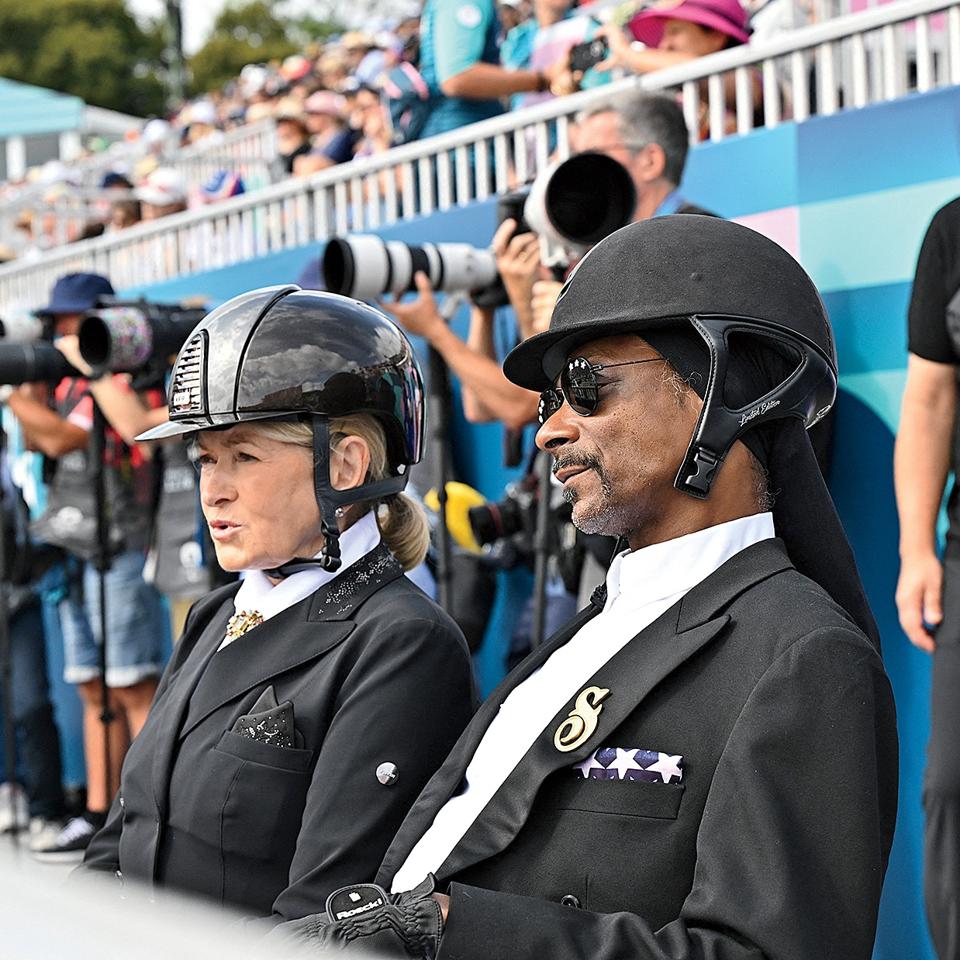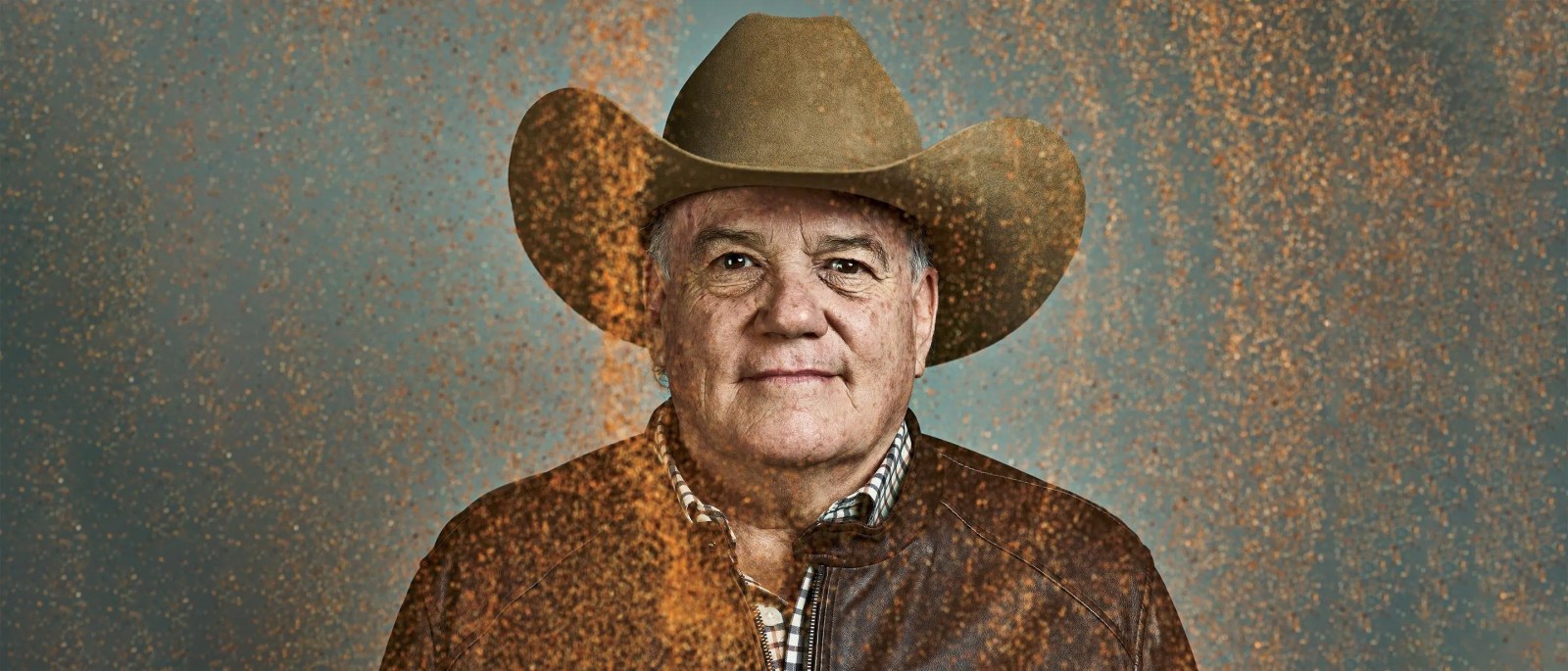The hip-hop legend has gone from parental advisory to family friendly. This fall, he’ll join The Voice and release a new Dr. Dre–produced album, all while looking for new joint ventures—including the kind you roll—that will keep his grandchildren set for life.

Striding through the streets of Paris, the Olympic flame held high above his head, Snoop Dogg was surely the first torchbearer ever asked to do the Crip Walk—the hip-hop strut made famous in his “Drop It Like It’s Hot” video—by an adoring fan. The 52-year-old rap legend happily obliged, much to the delight of the French crowd.
Moments like that are why people of all ages, genders and races feel as if they actually know Snoop, like a friend who has been in their lives for 30 years. “I’m not distant,” he tells Forbes as he kicks back in the private casino at his 25,000-square-foot workspace-cum-playground in Inglewood, California, that he calls The Compound. “I’m, like, touchable.”

That familiarity, combined with the unmistakable figure cut by his slender 6-foot-4 frame and long braided hair, make it difficult for the rapper born Calvin Broadus Jr. to go out in public without causing a scene. It’s why he spends so much time at The Compound, which also features recording studios, an arcade and a basketball court. Armed with a fresh blunt and a comically oversized ashtray, he attempts to explain why seemingly everyone wants a piece of the D-O-double-G these days.
“I just think when you’re organic and authentic to who you are, eventually the world will catch up,” he says. “What I didn’t do was try to follow the fads or the trends. I just stayed me the whole way.”
The public perception of Snoop has certainly come a long way since his early years in and out of prison and his emergence as a West Coast rap pioneer, beginning with 1993’s Doggystyle. While sentiments around hip-hop and cannabis have shifted in the decades since, Snoop has also worked hard at reinvention—while staying true to who he is. Whether he’s putting out a reggae or gospel record, appearing in movies such as Old School and Training Day or producing an animated show for kids, Snoop’s brand has morphed from parental-advisory to family-friendly.
Coming off his work for NBC at the Olympics, Snoop has never been more popular or more in-demand. This fall, he’ll debut as the newest coach on The Voice, and in December, he’ll release Missionary, an album produced by his longtime mentor Dr. Dre. He also has a handful of entrepreneurial ventures he hopes will benefit from his newfound status as America’s favorite stoner uncle.
“Of course there is a level of danger with him, but more than anything he’s a fun person to be around,” says the 59-year-old Dr. Dre, who cofounded Death Row Records in 1991 and headphone maker Beats Electronics 15 years later. “We’re never going to change who we are.
“But,” he adds, “the fact that cannabis is legal now—that definitely helps.”
Snoop’s latest turn as “peace messenger”—the moniker given to any Olympic torchbearer—is one he took very seriously in Paris. Whether he was swimming with Michael Phelps, dancing with Simone Biles or watching dressage with his longtime friend Martha Stewart, he radiated a positivity and playfulness that resonated with viewers.
“It’s everything we hoped for, and more,” says Molly Solomon, executive producer and president of programming for NBC Olympics. “He was as big a Paris headliner as any non-athlete has ever been.”
Solomon hopes Snoop will return not only for the 2028 Summer Games in his hometown of Los Angeles, but also for the 2026 Winter Games in Italy. At least there he won’t be asked to eat escargots on camera, as he was during a segment at Paris’ three-Michelin-star restaurant Le Cinq. “Y’all can put a pretty word on it all y’all want, try to make it cute, fry it, put seasoning on it,” he says of the French delicacy. “I don’t eat no snails.”
Despite his popularity surge and past as a pitchman for—among much else—Petco, Tostitos and Corona, Snoop has recently shifted away from endorsements to ventures in which he can participate in profits or get equity stakes. In 2020, he struck a licensing deal with 19 Crimes to launch a red wine with his face on the label, which the company says hit its 12-month sales target in the first six weeks. Dr. Bombay Ice Cream, a 50/50 joint venture with Happi Foodi, reported $10 million in sales since launching last August.
In the cannabis world—to which Snoop has been connected since he reportedly sold weed to high school classmate Cameron Diaz—he is so influential that a publicity stunt late last year in which he announced he would “give up smoke” caused publicly traded cannabis stocks to plummet—until he was later revealed to be promoting a smokeless fire pit. While he has ended his involvement with Casa Verde, the $350 million (2024 assets under management) cannabis-focused venture capital fund he cofounded in 2015, his Death Row Cannabis brand launched last year with stores in Los Angeles and Amsterdam.

The hub for this burgeoning business empire is Death Row Records, the same label that first signed Snoop in the early ’90s but declined before eventually filing for bankruptcy in 2006. In 2022, Snoop purchased Death Row for an estimated $10 million from the Blackstone-controlled MNRK Music Group. On Friday, New York City-based catalog collector Reservoir Media announced a new publishing deal for Snoop’s past catalog and future works, as well as the publishing catalog of Death Row.
“I own the label, and I want to have ownership in the things that I promote and market because I realize I’m good at it,” he says. “It don’t make no sense for me to take a check for $10 million and promote your company and it makes $500 million.”
It’s the same theory behind Gin and Juice, his L.A.-based startup that produces a ready-to-drink cocktail named for his 1993 hit single, which he launched earlier this year with Dr. Dre and record executive Jimmy Iovine. Snoop says that when he name-dropped gin brands like Seagram’s and Tanqueray in the lyrics, he didn’t realize how much money he was going to make for them.
He’s also passionate about Missionary, the first full album Dr. Dre has produced for Snoop since Doggystyle. “I feel like this is some of the best music I’ve ever done,” Dr. Dre says. “This is going to give him something new to perform onstage, and that’s what I was thinking about while producing this record.”
Adds Snoop: “Music is my foundation. That’s the root of who I am, so I can never run away from that. And I feel like one thing about great music and great musicians, they’re timeless.”
With talk of a tour as early as next year, there are no signs of Snoop slowing down. At this point in his career, he says he’s motivated to keep working by his 12 grandchildren and the participants in his Snoop Youth Football League, which he supports financially.
“I think about the perspective of the Olympics, I think about running a race,” he says of his career arc. “When I was given the baton, most people were already around the lap four or five times, but now at the pace I’ve been running, I’ve lapped them four or five times. So how do I give the baton to my grandkids to where they ahead of the race and not behind?”
This article was originally published on forbes.com and all figures are in USD.


